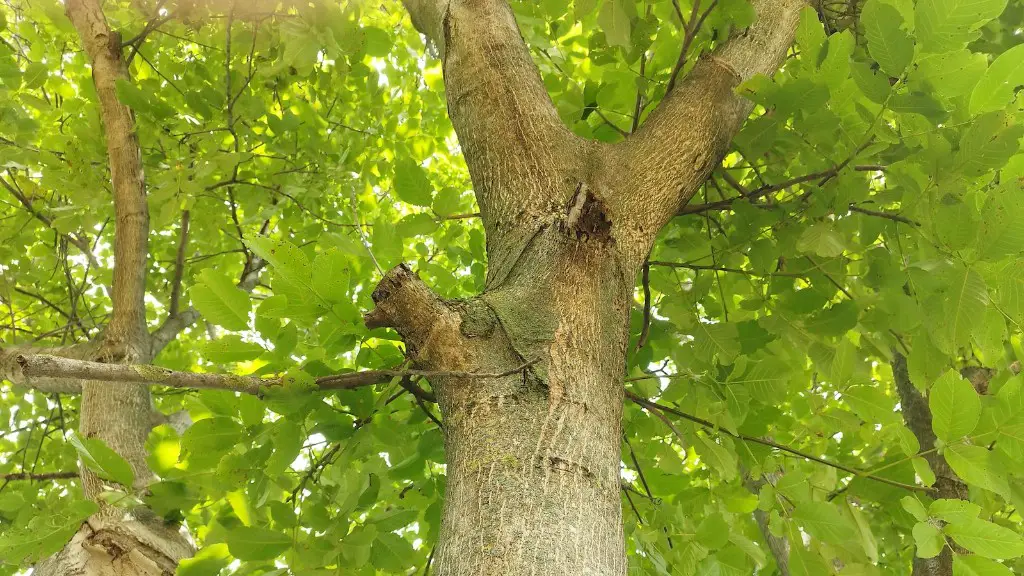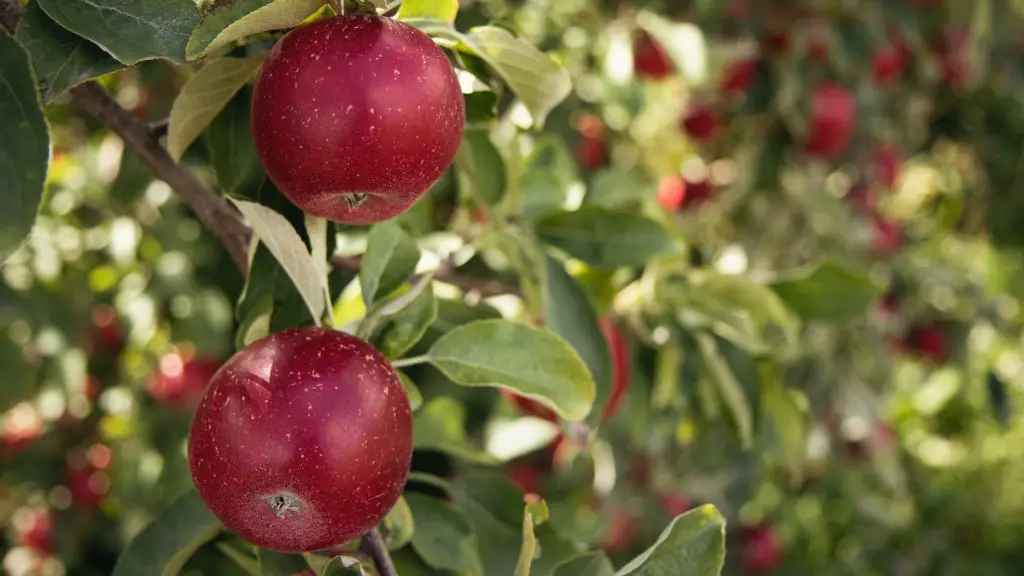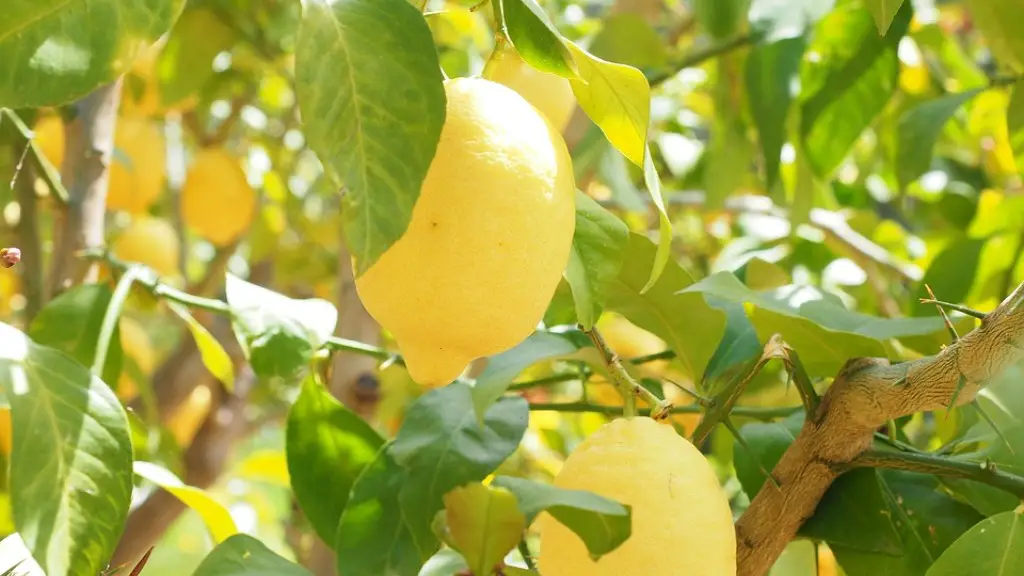There is a lot of confusion when it comes to tree nut and peanut allergies. Many people think they are the same, but they are actually quite different. Peanut allergies are more common, but tree nut allergies can be just as severe. Here is a breakdown of the differences between these two types of allergies.
No, tree nut and peanut allergies are not the same. Peanut allergies are more common, but tree nut allergies can be just as severe.
Can you be allergic to tree nuts but not peanuts?
Although 30% of peanut-allergic individuals are also allergic to tree nuts, having a tree nut allergy does not necessarily mean an individual is allergic to peanuts. This is because the two allergies are caused by different proteins. Peanut allergy is caused by a protein called Ara h 1, while tree nut allergy is caused by a protein called Cor a 8.
You may be surprised to learn that tree nuts can be found in a variety of common foods and products. While most people are aware of the more obvious sources of tree nuts, such as breakfast cereals and candy, there are many other foods and products that may contain tree nuts without you even realizing it. Be sure to check the ingredients list of any food or product before consuming it, as tree nuts can be found in unexpected places such as crackers, cookies, chocolates, energy bars, flavored coffee, frozen desserts, marinade, barbeque sauces, some cold cuts, ice cream, and even alcoholic beverages. In addition, tree nuts can be found in some personal care products such as lotions, shampoos, and soaps. If you have an allergy to tree nuts, it is important to be vigilant in checking labels and avoiding any products that may contain tree nuts, even in small amounts.
Why can I eat tree nuts but not peanuts
It is important to note that the proteins in peanuts are very different from those in tree nuts. This means that someone who is allergic to peanuts is not automatically going to be allergic to tree nuts. This is an important distinction to make, as some people may mistakenly avoid all nuts altogether if they have a peanut allergy.
A tree nut allergy is a serious, potentially life-threatening condition that should be taken seriously. If you have a tree nut allergy, it is important to avoid all tree nuts and products containing tree nuts. Anaphylaxis is a potentially fatal reaction that can occur very quickly after exposure to an allergen. If you are at risk for anaphylaxis, it is important to have an emergency plan in place and to carry epinephrine with you at all times.
Does Benadryl help with tree nut allergy?
If you or someone you are with has a severe allergic reaction, it is important to act quickly. First, an injection of epinephrine (EpiPen or EpiPen Jr) should be given to reduce the severity of the reaction. Second, taking liquid diphenhydramine (Benadryl) at a dose of 5 mg for every 10 lb of body weight, up to a maximum dose of 75 mg, also is recommended.
If you have a nut allergy, it is important to always carry your allergy medication with you. This includes oral antihistamines, and if prescribed, an adrenaline auto-injector (such as an EpiPen) and a Salbutamol (blue) inhaler.
What is the most common tree nut allergy?
Tree nut allergies are among the most common food allergies in both children and adults. The six tree nut allergies most commonly reported by children and adults are allergies to walnut, almond, hazelnut, pecan, cashew and pistachio. Allergies to these nuts can cause a variety of symptoms, including itching, swelling, trouble breathing and anaphylaxis. If you have a tree nut allergy, it’s important to avoid nuts and nut products and to carry an epinephrine auto-injector with you at all times in case of a severe allergic reaction.
As the world becomes more and more aware of the dangers of allergies, many companies are now offering allergen-free versions of their products. This is great news for those with allergies, as it means that they can now enjoy products that they previously had to avoid.
There are a number of allergen-free nut flavors available on the market, including chestnuts, coconuts, hazelnuts, macadamia nuts, pecans, pine nuts, pistachios, and walnuts. These products are safe for those with allergies to nuts, and they provide a delicious way to enjoy the flavor of nuts without having to worry about the risks.
Can you outgrow a peanut allergy
If your child has a peanut allergy, there is some good news – about 20 to 25 percent of children with peanut allergies outgrow them. And, of those who outgrow them, about 80 percent will do so by age 8. Allergies to tree nuts, fish and shellfish may be tougher to outgrow and are often lifelong. So, if your child has one of these allergies, it is important to take steps to prevent reactions and always have emergency treatment on hand.
Cashews are a surprising source of protein – most people think of them as a carb or a fat. But they’re actually a good source of essential amino acids, and they’re also high in heart-healthy monounsaturated fats. So if you’re looking for a healthy snack that will fill you up, cashews are a great choice.
What are the odds of having a tree nut allergy?
A tree nut allergy is a common allergy among children and adults. About 05 to 1% of people in the US have a tree nut allergy. A nut allergy is an immune system reaction to nut protein. Tree nuts contain many different proteins.
For those with allergies, coconuts can be a major source of confusion. The FDA considers coconuts a tree nut, which means that people who are allergic to tree nuts should avoid them. However, coconuts are not actually nuts, but fruits. This can be confusing for people trying to avoid allergens.
How long do tree nut allergies typically last
If you or your child has a nut allergy, it is important to be aware that the allergy is likely to last a lifetime. However, there is a chance that your child may outgrow the allergy, as 14 percent of children with a tree nut allergy and 20 percent of children with a peanut allergy eventually do. If you have any concerns, be sure to speak with your child’s doctor.
While it is possible to have an allergic reaction to coconut, most people who have allergies to tree nuts can eat coconuts safely. This is because coconuts are not classified as a “botanical nut,” but are instead considered a fruit by the American College of Allergy, Asthma, and Immunology (ACAAI). Therefore, if you have a tree nut allergy, you may want to ask your allergist if you can include coconuts in your diet.
Why are so many kids allergic to peanuts?
There are a few reasons why kids may be allergic to peanuts. One of them is due to genetics. If their parents are allergic, they may also have a low tolerance. Another reason is due to changes to the skin. Research is ongoing into the idea that daily washing with soap and detergents makes it easier for peanut proteins to penetrate the skin.
If you are allergic to peanuts, you should not try to desensitize yourself to them. This should only be done in a medical setting, under the supervision of a doctor. If you have a severe allergic reaction to peanuts, you could go into anaphylactic shock, which could be deadly.
Is Avocado considered a tree nut
So even though avocados are technically classified as a fruit, they contains proteins that are similar to tree nuts like chestnuts. If you have a tree nut allergy, you may want to avoid avocados to be safe.
Oral immunotherapy is a treatment option for people with severe allergies. The goal of oral immunotherapy is to help the patient build up a tolerance to an allergen over time. Patients consume small amounts of an allergen over a period of months, with dose levels increasing as the immune system becomes desensitized. This treatment option is often used for people who are allergic to food or venom.
Conclusion
No, they are not the same. Peanut allergies are more common, but tree nut allergies can be more severe.
While tree nut and peanut allergies are both capable of causing severe reactions, they are not the same. Tree nut allergies are more common, but peanut allergies are more severe. Peanut allergies can also be difficult to manage because peanuts are found in so many common foods.





